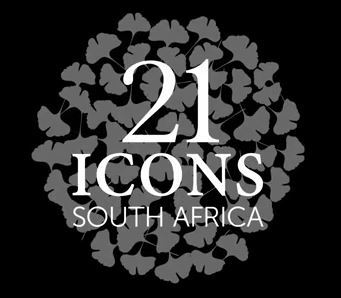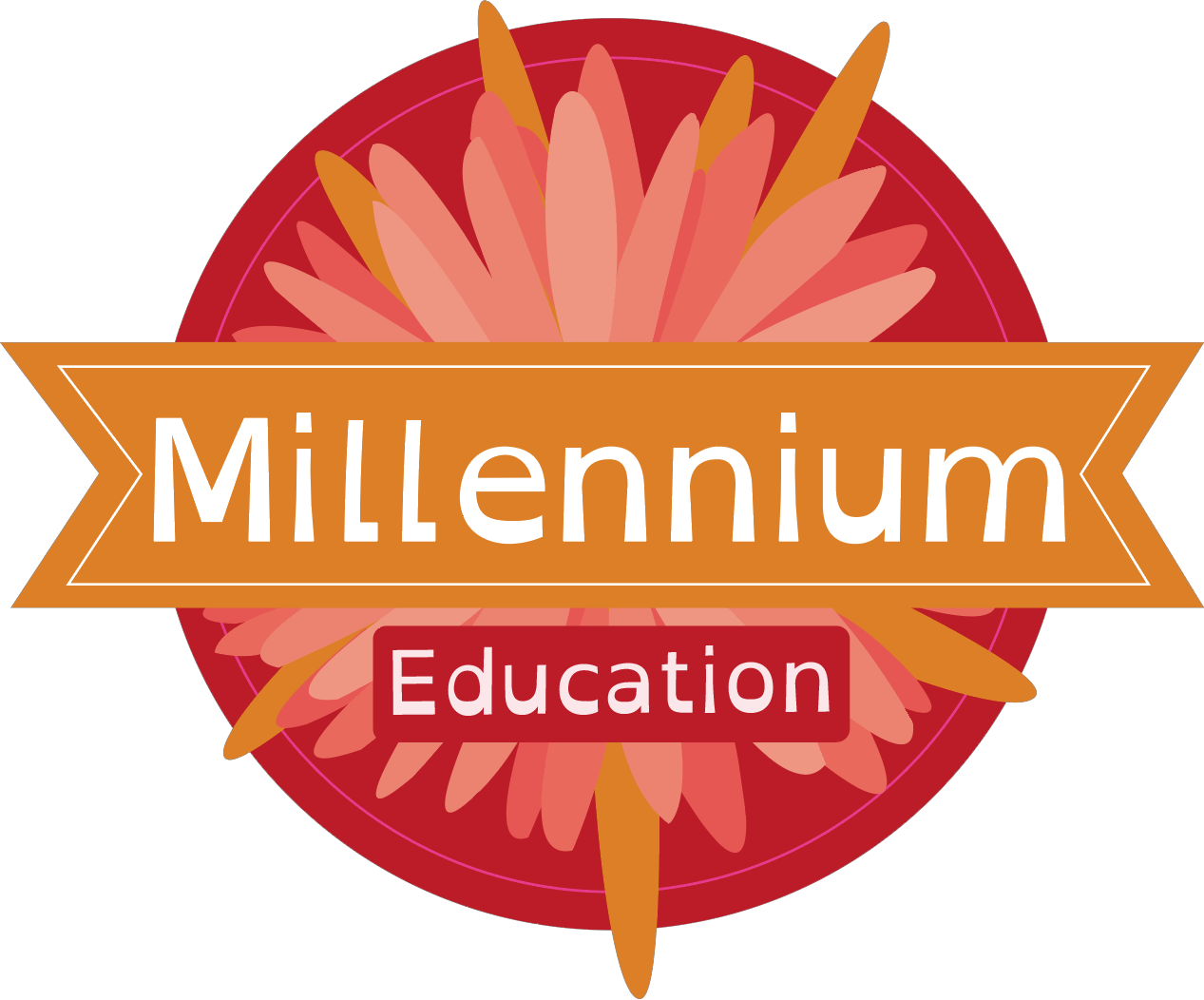
In the film, Desmond Tutu talks to photographer and film director Adrian Steirn about his inspiration, his role since retirement and his view on his legacy. He tells him in his usual self-deprecating and humorous way: “What do I do? I am retired, so I don’t do anything. Well, I go around the world and try to remind people fairly straightforward things that we easily forget, like, yes, there is a lot of evil in the world, but there is also a lot of good. In fact, we are made for goodness, which is fantastic!”
For the portrait, Tutu dances on stage next to a ballerina’s tutu, seemingly suspended in mid-air, like a magician performing a magic trick. The image — two tutus side by side — conveys the message that “The world needs another Tutu”. It aims to encourage everyone to follow, in some way, in his remarkable footsteps and embodies his playful yet thoughtful traits that the world has come to know and love.
Says Steirn: “He got up on the stage, danced around the tutu — he almost broke the tutu and he had all of us in stitches of laughter. I think that’s his magic. He makes every single person around him feel better about themselves.”
The proceeds of the sale of the original, signed portrait will go to the Desmond and Leah Tutu foundation, which harnesses and propagates the values, principles and mission of its founders to contribute sustainably to the creation of a more compassionate world. As Tutu says in 21 ICONS South Africa: “People speak about something like a Tutu legacy, which is, I suppose, standing up for justice and saying it is possible for enemies to become friends, for reconciliation and for peace.”
From young “street urchin” in the township to the “barefoot waif” who would confront, Bible under his arm, police who were violently breaking up demonstrations during apartheid; from “loose cannon” to “scandalous man” —Tutu has been called many names in his decades-long pursuit of peace, justice and reconciliation not only in South Africa, but across the world. And he gave South Africa a name: Rainbow Nation.
Tutu, born in 1931, was politicised at a young age, as he became aware of the destruction of hate and self-hate that racial injustice created. But this teacher and lecturer, and later, theologist and archbishop of Cape Town, realised his time had come when, in 1975, he became Anglican dean in Johannesburg. He now had a platform “not readily available to blacks, because most leaders were in chains or in exile”.
Over the next 20 years, Tutu worked tirelessly and vocally against apartheid because, he has said, “I never doubted we’d be free” one day. And that day came on 27 April 1994 when, at the age of 63, Tutu voted for the first time ever, in Gugulethu, Cape Town. Along the way, his local and international reputation had grown and he had received, among many other accolades in recognition of his crusade for freedom and human rights, the Nobel peace prize. And then, on May 10, Tutu introduced Nelson Mandela to South Africans and the world as the country’s first black and democratically elected president. A year later he was appointed chairman of the Truth and Reconciliation Commission.
Ever since, including since his retirement from public life in 2010,Tutu, a cancer survivor, has remained a global activist for democracy, freedom and human rights, whether in South Africa as a fierce critic of corruption and the government’s inability to alleviate poverty, or on the international stage advocating for change in Zimbabwe, Israel or Tibet. He is the patron of various charities and trusts and a member of many academic societies. He is also the recipient of countless honorary doctorates, honours and awards for peace, humanitarian service, his reconciliation efforts and spiritual leadership. He holds the keys to freedom in many cities — and has even had a rose named after him.
For the portrait, Tutu dances on stage next to a ballerina’s tutu, seemingly suspended in mid-air, like a magician performing a magic trick. The image — two tutus side by side — conveys the message that “The world needs another Tutu”. It aims to encourage everyone to follow, in some way, in his remarkable footsteps and embodies his playful yet thoughtful traits that the world has come to know and love.
Says Steirn: “He got up on the stage, danced around the tutu — he almost broke the tutu and he had all of us in stitches of laughter. I think that’s his magic. He makes every single person around him feel better about themselves.”
The proceeds of the sale of the original, signed portrait will go to the Desmond and Leah Tutu foundation, which harnesses and propagates the values, principles and mission of its founders to contribute sustainably to the creation of a more compassionate world. As Tutu says in 21 ICONS South Africa: “People speak about something like a Tutu legacy, which is, I suppose, standing up for justice and saying it is possible for enemies to become friends, for reconciliation and for peace.”
From young “street urchin” in the township to the “barefoot waif” who would confront, Bible under his arm, police who were violently breaking up demonstrations during apartheid; from “loose cannon” to “scandalous man” —Tutu has been called many names in his decades-long pursuit of peace, justice and reconciliation not only in South Africa, but across the world. And he gave South Africa a name: Rainbow Nation.
Tutu, born in 1931, was politicised at a young age, as he became aware of the destruction of hate and self-hate that racial injustice created. But this teacher and lecturer, and later, theologist and archbishop of Cape Town, realised his time had come when, in 1975, he became Anglican dean in Johannesburg. He now had a platform “not readily available to blacks, because most leaders were in chains or in exile”.
Over the next 20 years, Tutu worked tirelessly and vocally against apartheid because, he has said, “I never doubted we’d be free” one day. And that day came on 27 April 1994 when, at the age of 63, Tutu voted for the first time ever, in Gugulethu, Cape Town. Along the way, his local and international reputation had grown and he had received, among many other accolades in recognition of his crusade for freedom and human rights, the Nobel peace prize. And then, on May 10, Tutu introduced Nelson Mandela to South Africans and the world as the country’s first black and democratically elected president. A year later he was appointed chairman of the Truth and Reconciliation Commission.
Ever since, including since his retirement from public life in 2010,Tutu, a cancer survivor, has remained a global activist for democracy, freedom and human rights, whether in South Africa as a fierce critic of corruption and the government’s inability to alleviate poverty, or on the international stage advocating for change in Zimbabwe, Israel or Tibet. He is the patron of various charities and trusts and a member of many academic societies. He is also the recipient of countless honorary doctorates, honours and awards for peace, humanitarian service, his reconciliation efforts and spiritual leadership. He holds the keys to freedom in many cities — and has even had a rose named after him.










 Wanderlust Chronicles: 5 of the Best Entertainment Experiences on a Cruise Ship
Wanderlust Chronicles: 5 of the Best Entertainment Experiences on a Cruise Ship








